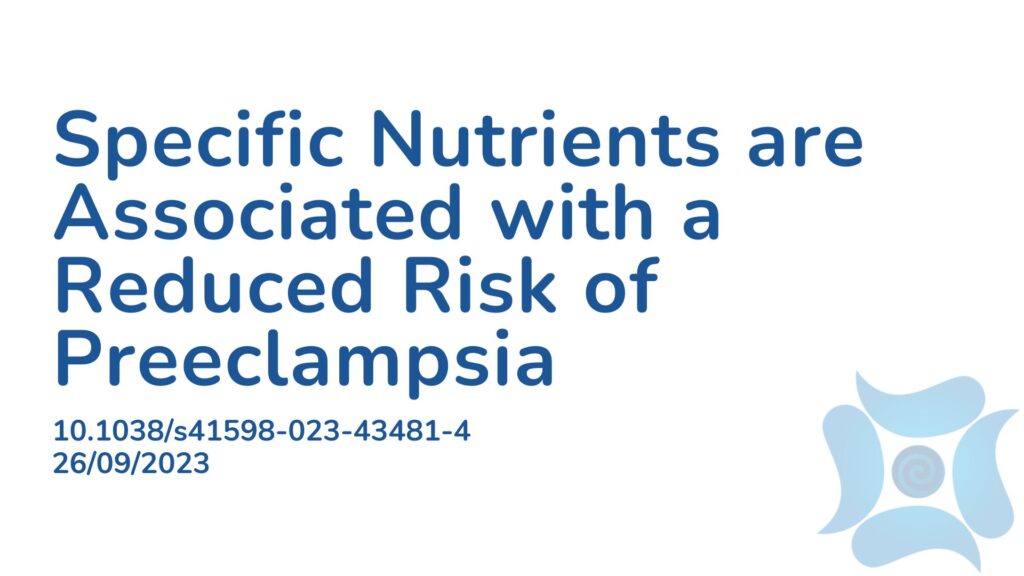Summary:
Preeclampsia (PE) is a condition characterized by high blood pressure after 20 weeks of pregnancy and carries potential for multiple organ complications for both mothers and fetuses. Despite its global prevalence of 3-5%, causing thousands of maternal deaths annually, there is no cure for PE except childbirth, making prevention crucial. Minerals like calcium, magnesium, and phosphorus play essential roles in blood pressure regulation and placental development and a deficiency in these minerals during pregnancy can increase the risk of PE. While previous studies have yielded mixed results, this case-control study in Chinese women aimed to clarify the relationship between dietary mineral intake and PE. The findings showed that a higher intake of dietary minerals such as calcium, magnesium, phosphorus, copper, iron, manganese and zinc during pregnancy was associated with a lower likelihood of developing PE.
Abstract:
Previous studies on the relationship between dietary minerals and preeclampsia (PE) have given inconsistent results. The aim of this study was to further clarify the relationship between dietary minerals intake and PE in Chinese pregnant women. In this study, 440 pairs of hospital–based preeclamptic and healthy women were matched 1:1. Dietary intake was obtained through a 78–item semi–quantitative food frequency questionnaire. Multivariate conditional logistic regression was used to estimate the odds ratios (ORs) and 95% confidence intervals (CIs). Restricted cubic splines were plotted to evaluate the dose–response relationship between dietary minerals intake and PE. This study found significant inverse associations for dietary intake of calcium, magnesium, phosphorus, iron, copper, manganese and zinc and the risk of PE in both univariate and multivariate models (all P- trend < 0.05). After adjusting for possible confounders, compared with the lowest quartile, the odds ratio of the highest quartile was 0.74 (95% CI 0.56–0.98) for calcium, 0.63 (95% CI 0.42–0.93) for magnesium, 0.45 (95% CI 0.31–0.65) for phosphorus, 0.44 (95% CI 0.30–0.65) for iron, 0.72 (95% CI 0.53–0.97) for copper, 0.66 (95% CI 0.48–0.91) for manganese and 0.38 (95% CI 0.25–0.57) for zinc. In addition, a reverse J–shaped relationship between dietary minerals intake and PE risk was observed (P–overall association < 0.05). In Chinese pregnant women, a higher intake of dietary minerals, including calcium, magnesium, phosphorus, copper, iron, manganese, and zinc was associated with a lower odds of PE.
Article Publication Date: 26/09/2023
DOI: 10.1038/s41598-023-43481-4



